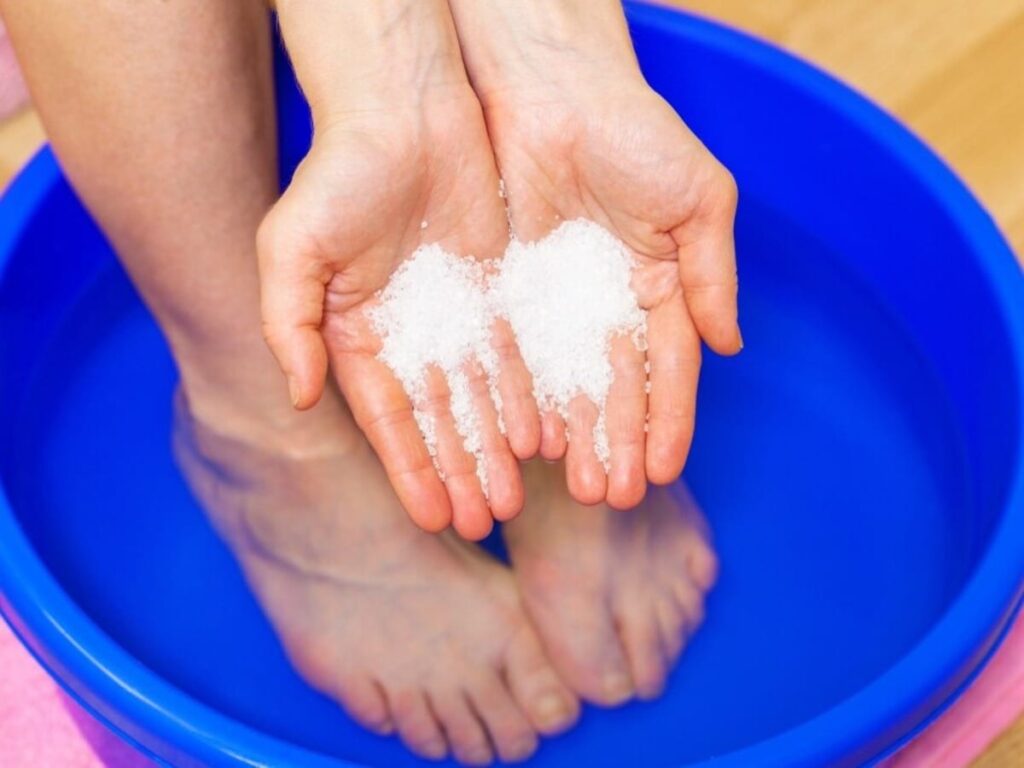During pregnancy, many women experience swelling in their feet, a condition medically known as edema. This swelling is particularly common in the third trimester and can cause discomfort and distress. Fortunately, there are natural remedies to help alleviate this issue. This article explores the benefits of soaking feet in saltwater and other effective strategies to reduce foot swelling during pregnancy.
Understanding Pregnancy-Related Swelling
Swelling in the feet during pregnancy is primarily due to increased fluid retention, hormonal changes, and pressure on the blood vessels caused by the growing uterus. While this is often a normal part of pregnancy, excessive swelling can sometimes indicate underlying health issues and should be discussed with a healthcare provider.
Causes of Swelling in Pregnant Women
| Cause | Description |
|---|---|
| Fluid Retention | The body retains more fluid during pregnancy, contributing to swelling. |
| Hormonal Changes | Hormones such as progesterone increase blood flow and fluid levels, leading to swelling. |
| Pressure from the Uterus | The growing uterus exerts pressure on blood vessels, hindering circulation. |
Benefits of Soaking Feet in Saltwater
Soaking feet in warm saltwater can provide significant relief from swelling for pregnant women. Here are some of its benefits:
1. Reduces Inflammation
Salt is known for its anti-inflammatory properties. Soaking your feet in saltwater can help decrease inflammation and alleviate discomfort caused by swelling.
2. Improves Circulation
The warm water helps dilate blood vessels, promoting better blood circulation. Enhanced circulation can help reduce swelling and boost overall foot health.
3. Relaxes Muscles and Reduces Stress
Warm saltwater is soothing and can significantly relax tired muscles in your feet. This relaxation can also reduce stress levels, which is beneficial during pregnancy.
4. Easy Home Remedy
This method is simple, cost-effective, and requires minimal preparation. It can be done at home easily, allowing you to take care of yourself while balancing daily tasks.
How to Prepare a Saltwater Foot Soak
Here’s a simple guide on how to prepare a saltwater foot soak:
- Fill a basin or tub with warm water enough to cover your feet.
- Add 1-2 tablespoons of Epsom salt or sea salt to the water.
- Mix well until the salt dissolves completely.
- Soak your feet for 15-20 minutes, allowing yourself to relax.
- After soaking, pat your feet dry and apply a moisturizer to keep the skin soft.
Additional Tips to Manage Foot Swelling
Along with soaking feet in saltwater, consider incorporating these additional strategies to manage and reduce swelling:
- Stay Hydrated: Drink plenty of water to help flush out excess salt and prevent dehydration.
- Elevate Your Feet: Whenever possible, prop your feet up to reduce pressure and improve circulation.
- Wear Comfortable Footwear: Opt for comfortable shoes that provide support and accommodate swelling.
- Exercise Regularly: Gentle exercises such as walking or prenatal yoga can increase circulation and alleviate swelling.
Conclusion
Foot swelling during pregnancy can lead to discomfort, but by utilizing natural methods like soaking your feet in saltwater and incorporating other healthy habits, you can effectively manage this condition. Always consult with your healthcare provider if you experience excessive swelling or any concerning symptoms to ensure the health and safety of both you and your baby.
